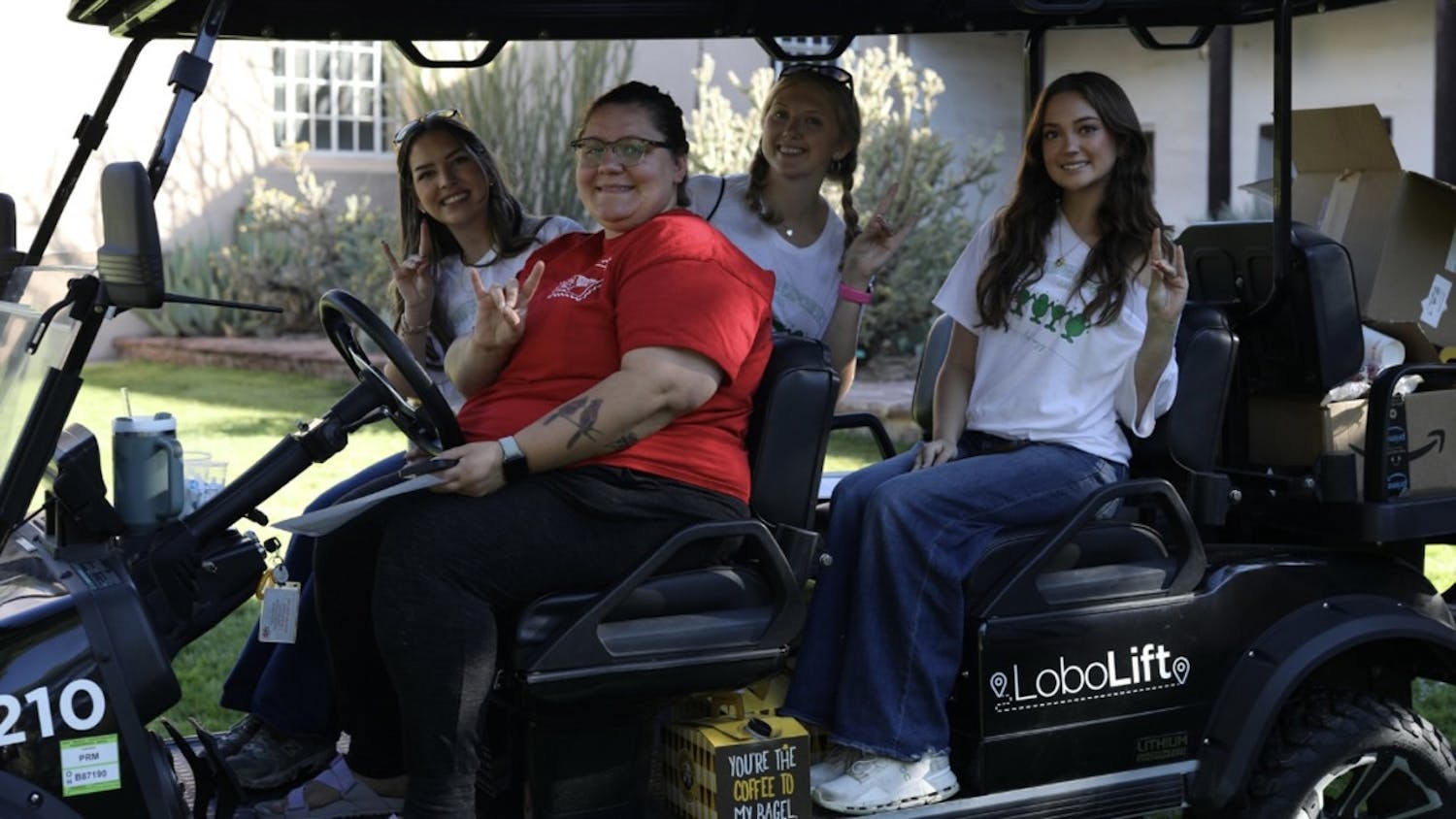University Counsel ruled the Open Meetings Act does not apply to the Student Fee Review Board process, according to a counsel memo sent to ASUNM President Laz Cardenas on Jan. 26.
The memo said the SFRB isn’t a decision-making body, and since it makes only recommendations that the University president can accept or reject, SFRB meetings aren’t subject to OMA laws.
Cardenas said he was pleased with the counsel’s decision.
“Of course, I knew that we were in the right,” he said.
SFRB hearings were postponed Jan. 22 after a disagreement between board members over whether a video camera should be allowed to record the hearings.
Cardenas called UNMPD to the hearings to have the camera removed. Officers said they couldn’t remove the camera after GPSA President Lissa Knudsen said video recording was allowed according to the NM Open Meetings Act.
Hours later, Cardenas motioned for the board to suspend hearings pending a University Counsel ruling. The majority of student fee applicants’ hearings were put on hold until further notice.
University Counsel ruled that in order for the act to apply to SFRB hearings, the counsel needed proof the SFRB was a policy-making body. The legal team was compelled to make this distinction because of a clause on page 9 of the Open Meetings Act Compliance Guide:
“In some situations, even a non-statutory committee appointed by a public body may constitute a ‘policymaking body’ subject to the act if it makes any decisions on behalf of, formulates
recommendations that are binding in any legal or practical way on, or otherwise establishes policy for the public body.”
This would mean the UNM administration, for the most part, always adopted the SFRB’s student fee allocation recommendations.
The memo, however, cited SFRB recommendations from 2004, 2007 and 2008, which the president and/or Board of Regents changed.
Sarah Welsh, New Mexico Foundation for Open Government executive director, said this distinction between policy-making and recommendations is still up to interpretation.
“I think they (University Counsel) recognize the various factors at play and tried to weigh the evidence,” she said. “So the issue becomes how you interpret the fact pattern: Does the University rubber-stamp the SFRB’s decisions? Or is it just one factor in the ultimate decision?”
Welsh said in an e-mail that committees are not required to let the public video record meetings, but she said transparency is always best.
“I think it behooves any body which purports to represent the public to make its proceedings open,” she said. “It’s not just a matter of accountability for the board. If you’re open, you’re more likely to hear a wide range of opinions and input, leading to better decisions.”
She also said Jan. 22 that since the meeting was open to the public in a public building during regular hours that cameras were permissible.
Cardenas said he didn’t want video cameras at the Jan. 22 meeting to protect the students, brought to hearings by campus organizations, particularly those who are undocumented.
“It’s just not a comfortable environment for the presenters,” he said. “The hearings are just to gather information, and since we’re just gathering information … we don’t have anything to hide from the students.”
Cardenas said he spoke with University Counsel and decided to allow audio, but not video recording, at this weekend’s make-up SFRB hearings.
Get content from The Daily Lobo delivered to your inbox
“I’ve discussed with legal counsel and … we have their backing. I just hope it doesn’t come down to that,” Cardenas said. “If someone were to bring a camera, or if … the media were to bring a camera, then we’d probably have to close the meeting off to the public.”
Cardenas said GPSA representatives will not be present because the undergraduates “lost trust in the graduate side.”
Knudsen said she disagrees with the administration’s interpretation of the Open Meetings Act. She said she expects the issue will be resolved at a later date.
“What we need to focus on now is that we need to move forward with this year’s process,” Knudsen said. “And I believe that the entire SFRB can work together if we have an opportunity to talk and come to a compromise.”
Cardenas said GPSA provided no notice before bringing the camera to the hearings. He said he wouldn’t have a problem with taping the proceeding if prior arrangements are made.
Welsh said presenting in front of video recorders is similar to presenting in front of large audiences.
“In this context, a video camera is simply the equivalent of another 40, 50, or 100 people watching and listening in,” Welsh said. “ … If 100 additional people had shown up to the meeting last week, the large crowd would probably have made the speakers a little nervous. They might alter what they say, and their voices might crack. That doesn’t mean the audience should leave.”





